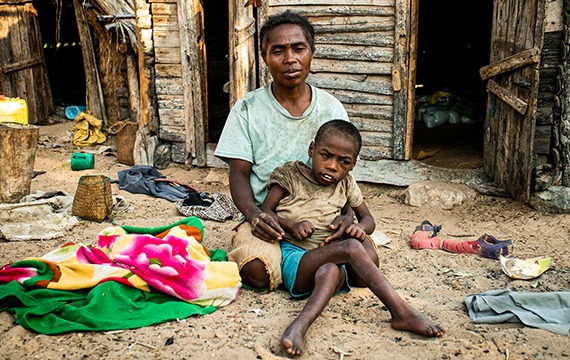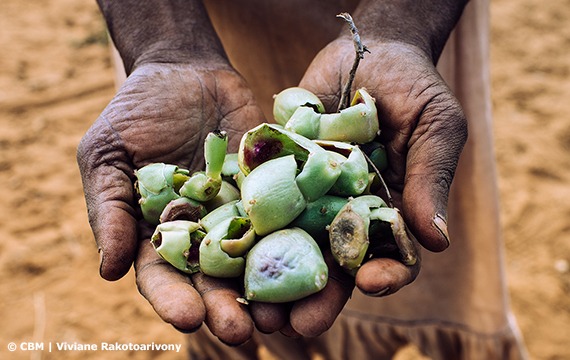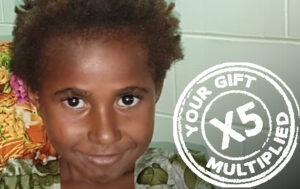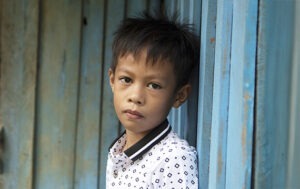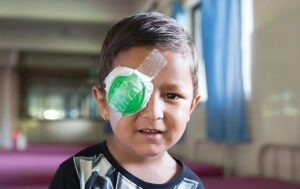Maharavo & Mara
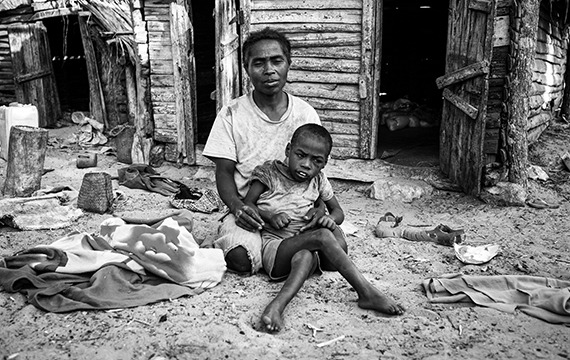
Please send an urgent gift to help feed a child with a disability in Madagascar and give them hope for a better future.
To us, a bowl of white rice is a side dish. To the people of Madagascar, it’s the most prized food of all. But after numerous cyclones in the last few years, after floods that tore the soil away, and droughts that turned it to barren dust…
...rice no longer grows.
Just imagine the situation there... a mother or father whose children are waking up hungry and there is nothing to give them!
There are stories of people going without food to try and keep their children alive…
Sadly this is what is continuing to happen to families, like Mara’s, in Madagascar right now.
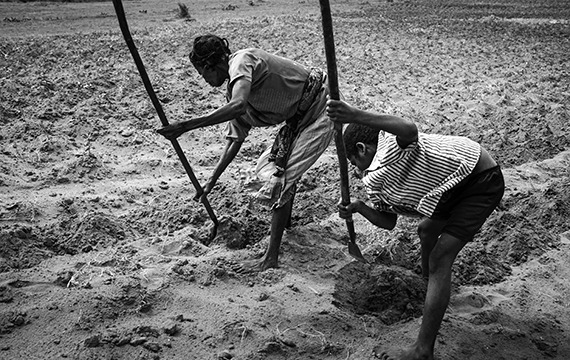
But we believe the Lord works through the hands of caring people like you.
Please will you prayerfully consider answering the call to give hope to children and families by making a life-saving gift today.
Your kind and generous gift will rapidly be translated into the very help people with disabilities and other vulnerable people in Madagascar need access to right now...
…food so they are not at risk of starvation, but instead receive essential nutrition.
…safe water so they do not dehydrate or fall prey to waterborne diseases like dysentery and cholera.
…mobility aids like crutches, walkers, and wheelchairs, so they can reach crisis distribution points.
Mara’s young son, Maharavo, was born with a physical and intellectual disability. He is unable to sit up on his own, speak or chew food. His diet consists exclusively of porridge and rice soup, the latter being a luxury for the family who already live in a precarious situation.
Maharavo needs constant care. One of his parents must be with him at all times. This makes it virtually impossible for the family to work, earn money, and queue for humanitarian support.
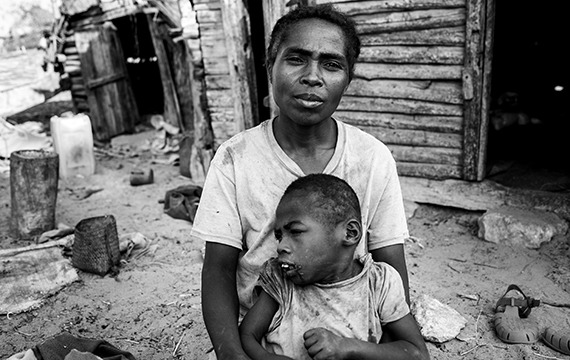
This is always what happens in a crisis. The most vulnerable people – those trapped in the cruel cycle of disability and poverty – are always found at the back of every queue. They are pushed aside, left behind, forgotten.
Just because they have a disability! But not by cbm – and not by kind people like you.
Thank you for your compassion for people living in the most vulnerable situations – today please will you reach out with a loving heart and prayerfully consider giving a life-saving gift.
We have previously written about the food crisis in Madagascar.
And sadly, today, the situation has not changed for the better.
Why?
Because – as is tragically common in far too many poverty-stricken island nations – changing weather patterns are hitting Madagascar incredibly hard.
BACK-TO-BACK DROUGHTS year after year since November 2020, have turned much of the country into dry wasteland.
NUMEROUS CYCLONES of category 4 or higher have battered the same extremely disadvantaged regions of the country with torrential rain, flooding and winds of 190km/h to 210km/h – all since February 2022.
And this has led to an unprecedented food crisis in what is already one of the poorest nations on Earth. In fact, right now…
- More than 1 million people are affected by this catastrophic humanitarian crisis.
- 92,000 children have Severe Acute Malnutrition.
- 600,000 children have little access to safe water.
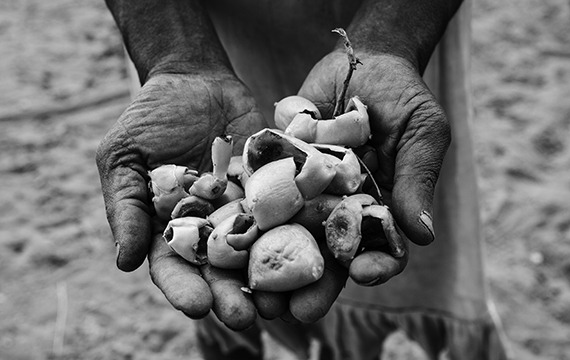
As one of our kind supporters, you have helped people trapped in the cruel cycle of poverty and disability. And right now, the one thing people like Mara and Maharavo need most, is kind hearts like yours.
Please will you make an URGENT gift to help provide rapid access to food and water supplies for a family like Mara’s - plus mobility aids to help people with disabilities reach distribution points before it’s too late.
We have already identified households, including those with children and adults with disabilities, who need our IMMEDIATE help now.
Families just like Maharavo’s. Where parents spend every waking hour either caring for their children, looking for work, or searching for water and food – cactus fruits and cassava leaves – to make a meagre meal once a day.
But it’s never enough.
Maharavo – like thousands of other children, including children with disabilities – is wasting away right now.
We honestly don’t know how children like Maharavo and their families can survive on the little they have left. We only know that we must send him, and all the other children like him and their families, the urgent aid they need... access to food, water, and mobility aids, as soon as we can!
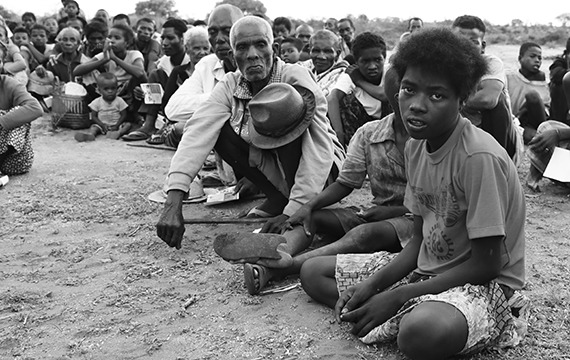
Please will you prayerfully consider sending an urgent, life-saving gift today. The more you give, the more people who can be helped!
“Do not neglect to do good and to share what you have, for such sacrifices are pleasing to God.” - Hebrews 13:16
cbm teams are on the ground in the most drought-stricken regions of Madagascar, ready and able to provide people with access to crisis support immediately.
But cbm can’t reach out to everyone who needs help without the caring support of good people like you. Please partner with cbm to provide a life-saving gift to give hope to children and their families in Madagascar.
Please act with the love we know you have in your heart.
A child, like Maharavo, needs your urgent help to survive this crisis. Please will you send a gift to help feed children and adults in Madagascar at risk of starvation. If you’re unable to give at this time, please will you keep the people of Madagascar in your prayers. Thank you for your kind and caring heart.
